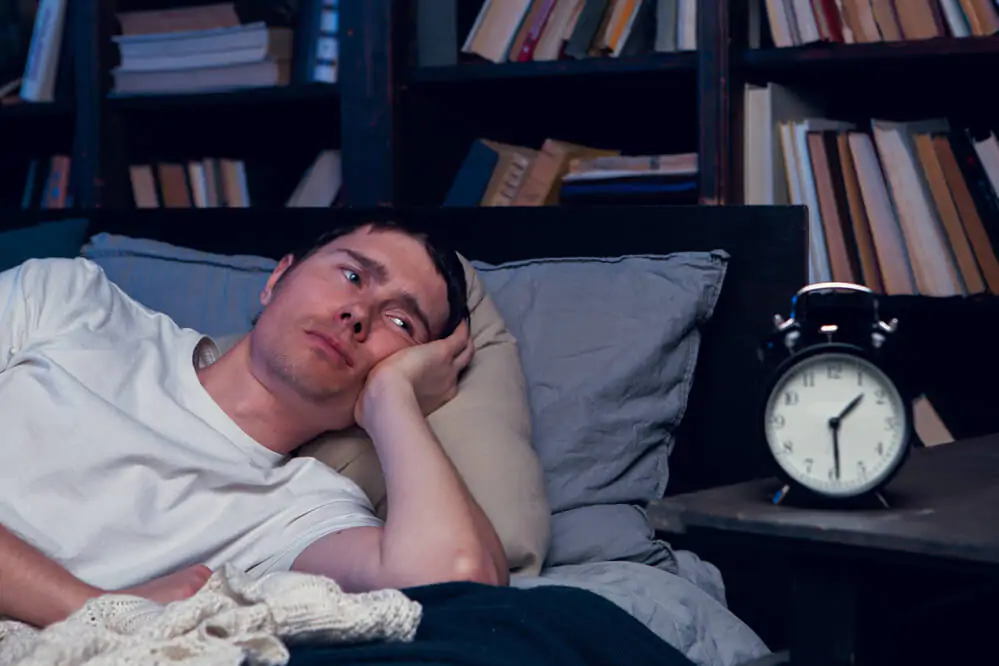How long does coffee keep you awake? If you drink a cup of coffee in the afternoon, will you have trouble going to sleep at night? Learn more below!

If you are anything like me, you cannot get up in the morning without a cup of coffee. Sometimes, when I am feeling tired, I reach for an espresso or latte instead. If sense sleepiness in the afternoon, I may start to feel tired in the afternoon.
I might have multiple cups of coffee to try to keep me awake. Then, I have trouble sleeping at night!
If you have trouble going to sleep at night, drinking coffee in the afternoon could be the culprit. The effects of caffeine can be long-lasting. If you drink coffee in the afternoon, are you guaranteed to have trouble sleeping at night? When it comes to wondering how long does coffee last to keep you awake, it depends on the half-life of caffeine and its impacts on the central nervous system.
So, how long does coffee keep you awake? Learn more about caffeine intake, its side effects, and your circadian rhythm below!
How Does Caffeine Work?
There are a number of factors that will dictate how a cup of coffee and packs you. The amount of caffeine in a cup of coffee, how many cups of coffee you drink, how fast do you metabolize coffee, and the exact timing of your coffee will play a role in its impacts on you.
How exactly does caffeine work? Caffeine is designed to impersonate a molecule called adenosine. Adenosine is a neurotransmitter that gradually builds up in your body.
As more adenosine binds to your receptors, you may start to feel a bit of drowsiness. This makes you tired at night.
Caffeine impersonates adenosine. It binds to adenosine receptors without setting them off. Therefore, caffeine prevents adenosine from binding appropriately to your adenosine receptors, preventing you from feeling tired.
If caffeine is still active at night, it can impact your sleep time, leading to sleep deprivation.
Are you wondering why you feel a crash when the caffeine starts to wear off? When the caffeine leaves your system, all the blocked adenosine is now free to bind to your adenosine receptors. When they bind at the same time, you start to feel tired quickly.
That is the stereotypical caffeine crash.
How Long Does Caffeine Last?
So, how long does it take before you hit that caffeine crash? It depends on how quickly you metabolize caffeine. Similar to other substances you put in your body, if you drink caffeine on a regular basis, you may metabolize caffeine more quickly.
In general, caffeine has a half-life of approximately 5 hours. This means that if you consume 20 mg of caffeine, approximately 10 mg of caffeine will be left in your system after 5 hours. After another five hours have passed, there will be five mg remaining.
You should expect your caffeine levels to peak summer between 15 and 45 minutes after you drink your cup of coffee. As soon as caffeine is absorbed into your bloodstream, or touches your lips, your body begins to metabolize it. If caffeine levels are too high, you may start to feel the jitters.
This pick me-up wear out quickly as your liver breaks down caffeine.
There are a number of factors that will impact how long the effects of caffeine will last. In addition to the amount of caffeine you have consumed, your age, body weight, and overall caffeine sensitivity will also play a role.
What Is Caffeine Withdrawal?

If you drink coffee on a regular basis, you may develop a dependence on caffeine. If you are someone who physically cannot get out of bed in the morning without caffeine, you may be dependent on it.
If you are dependent on caffeine and go for an extended amount of time without it, you may develop something known as caffeine withdrawal. Your body believed that it needs caffeine to function appropriately. Therefore, you may develop sweats, chills, and pounding headaches if you do not drink caffeine.
You can break your dependence on caffeine by going for a few days without it. On the other hand, this will be incredibly uncomfortable. It takes a lot of willpower to get through caffeine withdrawal.
Final Word on How Long Does A Cup of Coffee Keep You Awake
There are a lot of factors that play a role in how long a cup of coffee will keep you awake. The half-life of caffeine is approximately 5 hours. This means that you should feel the effects of caffeine for a few hours after you drink it.
On the other hand, there are a lot of personal factors that will play a role in how long you feel the effects of caffeine. This includes your age, body composition, and your overall sensitivity to caffeine. If you do not want caffeine to keep you awake at night, try to avoid drinking coffee in the afternoon.
Caffeine can stay in your system for several hours.
FAQs About How Long Does Coffee Last To Keep You Awake
Will I have trouble sleeping at night if I drink coffee in the afternoon?
If you drink coffee in the afternoon, there is a good chance you will still feel the effects of caffeine when you try to go to sleep at night. It depends on your caffeine consumption and how sensitive you are to caffeine. Consider reaching for decaf instead.
You might also want to seek medical advice from a sleep medicine specialist if you are having trouble falling asleep.
How do I know if I am going through caffeine withdrawal?
If it has been a few days since your last cup of coffee, and you are feeling excruciating headaches, this is probably caffeine withdrawal. If you want to break your dependence on caffeine, you should try to avoid drinking caffeine during your withdrawal period. Try to stay hydrated and get plenty of rest.
Caffeine withdrawal usually lasts for a few days.
